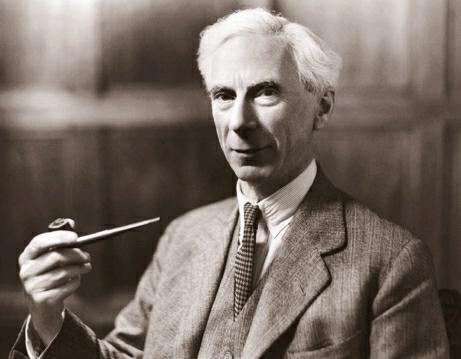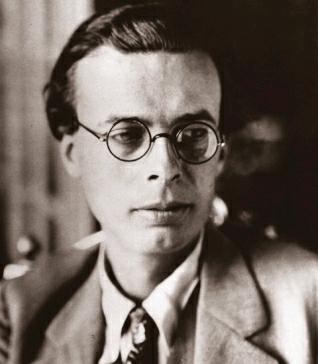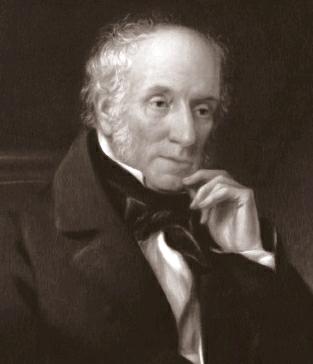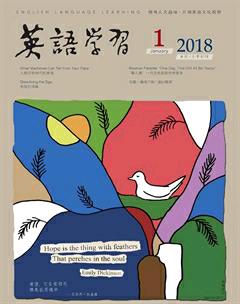自我的消融
By+Jules+Evans



You dont need drugs or a church for an ecstatic1 experience that helps transcend the self and connect to something bigger…
In 1969, the British writer Philip Pullman was walking down the Charing Cross Road2 in London, when his consciousness abruptly shifted. He had a deep sense that the Universe is “alive, conscious and full of purpose”. He says: “Everything Ive written has been an attempt to bear witness to the truth of that statement”.
What does one call such an experience? Pullman refers to it as “transcendent”. The philosopher and psychologist William James called them “religious experiences”—although Pullman, who wrote a fictionalised biography of Jesus, would insist that God was not involved. Other psychologists call such moments spiritual, mystical, anomalous3 or out-of-the-ordinary. My preferred term is“ecstatic”. Today, we think of ecstasy as meaning the drug MDMA or the state of being “very happy”, but originally it meant ekstasis—a moment when you stand outside your ordinary self, and feel a connection to something bigger than you.4 Such moments can be euphoric5, but also terrifying.
In most cultures, ecstasy is a connection to the spirit world. In our culture, since the 17th century, if you suggest youre connected to the spirit world, youre likely to be considered ignorant, eccentric or unwell. Ecstasy has been labelled as various mental disorders: enthusiasm, hysteria, psychosis6. Its been condemned as a threat to secular7 government. Weve become a more controlled, regulated and disciplinarian society, in which ones standing as a good citizen relies on ones ability to control ones emotions, be polite, and do ones job. The autonomous8 self has become our highest ideal, and the idea of surrendering the self is seen as dangerous.
Yet ecstatic experiences are surprisingly common, we just dont talk about them. The most common word used when describing such experiences is “connection”—we briefly shift beyond our separate self-absorbed egos, and feel deeply connected to other beings, or to all things. Some interpret these moments as an encounter with the divine9, but not all do. The philosopher Bertrand Russell10, for example, also had a “mystic moment”when he suddenly felt filled with love for people on a London street. The experience didnt turn him into a Christian, but it did turn him into a life-long pacifist11.
I became interested in ecstatic experiences when I was 24 and had a near-death experience. I fell off a mountain while skiing, dropped 30 feet, and broke my leg and back. As I lay there, I felt immersed in love and light. Id been suffering from emotional problems for six years, and feared my ego was permanently damaged. In that moment, I knew that I was OK, I was loved, that there was something in me that could not be damaged, call it ‘the soul, “the self”, “pure consciousness” or what-haveyou12. The experience was hugely healing. But was it just luck, or grace? Can one seek ecstasy?endprint

Pullman thinks not. He says: “Seeking this sort of thing doesnt work. It is far too self-centred. Things like my experience are by-products, not goals. To make them the aim of your life is an act of monumental13 and self-deceiving egotism.”
I disagree. It seems to me that humans have always sought ecstasy. The earliest human artefacts—the cave paintings of Lascaux—are records of Homo sapiens attempt to get out of our heads.14 We have always sought ways to “unself”, because the ego is an anxious, claustrophobic15, lonely and boring place to be stuck. As the author Aldous Huxley16 wrote, humans have “a deep-seated urge to selftranscendence”. However, we can get out of our ordinary selves in good and bad ways—what Huxley called “healthy and toxic transcendence”.
How can we seek ecstasy in a healthy way? In its most common-garden variety, we can seek what the psychologist Mihaly Csikszentmihalyi called “flow”.17 By this he meant moments where we become so absorbed in an activity that we forget ourselves and lose track of time. We could lose ourselves in a good book, for example, or a computer game. Others shift their consciousness by going for a walk in nature, where they find what the poet William Wordsworth18 called “the quiet stream of self-forgetfulness”. Or we turn to sex, which the feminist Susan Sontag19 called the “oldest resource which human beings have available to them for blowing their mind”.
And then there are the deeper moments of egoloss that one might term a “mystical experience”. Can we seek them? Certainly. Thats what humans have been doing for hundreds of thousands of years, through various ecstatic techniques such as strenuous dancing, chanting, fasting, self-inflicted pain,20 or sensory deprivation.
One way in which humans have traditionally sought ego-transcendence is through contemplation. Western culture abandoned its own contemplative traditions during the Reformation and Counter-Reformation, but in the past 50 years Eastern contemplative practices have flooded in to fill the vacuum.21 Around 9 per cent of adult Amerians meditate, and 15 per cent practise yoga.
Psychologists and psychiatrists are moving from their traditional hostility to ecstasy to an understanding that its often good for us. Much of our personality is made up of attitudes that are usually subconscious. We drag around buried trauma, guilt, feelings of low selfworth. In moments of ecstasy, the threshold of consciousness is lowered, people encounter these subconscious attitudes, and are able to step outside of them. They can feel a deep sense of love for themselves and others, which can heal them at a deep level. Maybe this is just an opening to the subconscious, maybe its a connection to a higher dimension of spirit—we dont know.endprint

1969年的一天,英国作家菲利普·普尔曼正走在伦敦查令十字街上,突然他的意识发生了转换,他强烈地感觉到整个宇宙“有活力、有意识、充满意义”。他说:“我的写作,都是为了阐明这一观点的正确性。”
该如何称呼这样的体验呢?普尔曼称其为“超验”。哲学家和心理学家威廉姆·詹姆斯称其为“宗教体验”——尽管普尔曼写过一部虚构的耶稣自传,却不认为此事和上帝有关。其他心理学家形容这样的时刻是灵性的、神秘的、破格的或者非同寻常的。我更倾向称其为“极乐状态”。今天,我们认为“极乐状态”是指吃了摇头丸后或者“非常高兴”的状态,其实最初它的意思是“魂游象外”——超出了普通的自我,感到与更高的存在产生联结。这样的时刻是欣快的,但也着实吓人。
在大多数文化中,“极乐体验”能通往灵性世界。在西方文化里,自17世纪以来,如果有人自称与灵性世界联结了,那么此人一定会被视为无知、古怪或不正常。“极乐体验”被贴上各种精神紊乱的标签:狂热、歇斯底里、精神错乱,还被认为是对现世政府的威胁。这是一个掌控有度,循规蹈矩的社会,而好公民需要控制自己的情绪,礼貌待人,干好本职工作。有自控力的自我是我们追求的最高理想,而放弃自己的意志则被认为是危险的念头。
令人吃惊的是,“极乐体验”是普遍现象,只是大家都對此缄默不语。形容这种感觉使用频率最高的词是“联结”——刹那间,我们超越了自我,与其他事物,甚至是万物,产生深刻的联结。一些人将这样的时刻称之为与神的相遇,有的人则认为并非如此。比如,哲学家伯特兰·罗素就经历了这样的“神秘时刻”,在某一瞬间,他的心中对伦敦街头的路人充满了爱。虽然这一经历没有让他成为一名基督徒,却使他终生追求和平主义。
24岁时我对“极乐体验”产生了兴趣,这始于我的一次濒死体验。我在滑雪时从30英尺(约9米)的高处跌落,摔断了腿和背。我躺在地上,却感觉自己沐浴在爱的光芒中。此前,我饱受情绪问题折磨已有六年之久,担心自己的人格受到永久损伤。在那一刻,我知道自己并无大碍,感觉自己得到上苍的恩泽眷顾,感到内心深处有股坚不可摧的力量,可以将它称为“灵魂”、“自我”或者“纯粹的意识”等等。这次经历似一剂良药,极大治愈了我。那么,这种经历是运气使然,抑或是上天的恩典?人可以刻意追求“极乐”吗?
对此,普尔曼持否定意见。他说:“刻意寻找这类体验是徒劳无用的,因为这样做过于以自我为中心。我的‘极乐体验只是无心插柳的结果,而非人生的终极目标。将它设立为人生目标是自欺欺人的极度自我主义。”
我却不这么看。我认为,人类一直以来都在寻找这种体验。拉斯科洞窟壁画是已知最早的文物,它向后人展示了智人如何试图达到忘我境界。我们总是试图“消除自我”,因为把自己禁锢在自我这个幽闭、孤寂的地方,实在是件让人焦虑、无趣的事情。阿道司·赫胥黎写道:人类“渴望超越自我的想法根深蒂固”。然而,要达到这一境界,我们可经由好、坏两条途经,赫胥黎称之为“康庄大道与歪门邪道”。
那么,我们如何正确地寻求“极乐体验”呢?最寻常的一种莫过于“心流”,这是由心理学家米哈里·齐克森提出的理念。“心流”是指我们在从事一项活动时,进入完全的忘我境界,忘却了时间的流逝。读一本好书或玩电脑游戏入迷就是很好的例子。有的人则在大自然中散步时体会到这种感觉,正如诗人威廉·华兹华斯在诗中形容的“宁静地徜徉在忘我的长河中”。或者索性转向“性”,女权主义者苏珊·桑塔格称它为“最原始的、让人类忘我的体验”。
比之更深层次的忘我境界是“神秘体验”。这种体验可以寻得吗?当然可以。这正是人类几十万年来所追求的,通过激烈的舞蹈、诵经、节食、自残或感觉剥夺等各种获得“极乐”的方法,来达到这种状态。
冥想是达到超越自我的另一种传统的方法。在宗教改革和反宗教改革的进程中,西方文化抛弃了固有的冥想传统。但在过去50年间,东方冥想术涌入西方,填补了这一空缺。约9%的美国成年人选择冥想,15%的人练习瑜伽。
心理学家和精神病医生对“极乐体验”的看法,从传统的敌视转为理解,认为这是一种有益的经历。我们的性格大多是由潜意识中的观念组成的。我们掩饰内心的创伤、内疚和自卑,但又为之困顿不已。在“极乐时刻”,当意识的临界点降低后,人们发现了潜意识里的观念,于是摆脱束缚,走出困顿。他们能感受到对自己及他人深深的爱,使他们得到深层次的疗愈。或许“极乐体验”只是我们与潜意识的初遇,或许它是与精神更高层面的一种联结——我们无从得知。



 endprint
endprint

